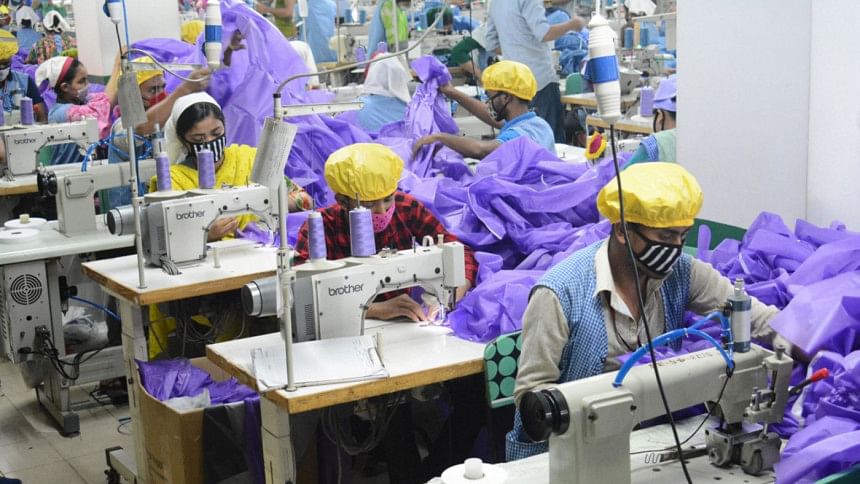A crisis like no other: But what have we learned?

We are still here and still fighting, even though the past few months have been tough. Myself, and many of my contemporaries running garment factories in Bangladesh are well qualified, experienced, we have the training and we have the knowledge. But absolutely nothing could have prepared us for the past few months. It has been a rollercoaster ride like no other.
In the midst of the battle, it has been difficult at times to sit back and take stock. We've all been fire-fighting and it has been all hands on deck pretty much since March. Sleepless nights and regular trips to the bank have become the norm for many of us.
Despite this, even in these incredibly challenging times, a few clear dynamics have presented themselves. Without doubt, we have learned a lot in the past few months, about ourselves and the industry in which we operate.
So what are the key lessons? Here are five things that stood out during the coronavirus pandemic.
One, we are resilient. We probably always knew this but this pandemic has shown that, as an industry, we are capable of digging deep and drawing on amazing reserves. There are factories still operating now which I would not have given a prayer a few months ago. But somehow, they have clung on, from week to week, and month to month. No factory owner wants to go down without a fight, and this pandemic has highlighted the incredible, indomitable human spirit which is alive and well in our industry.
Two, sometimes it takes a crisis to show people just what they are capable of. Look back to early on during this pandemic when our factories quickly adapted to producing personal protective equipment, despite having little experience in this area. Look at how factories across the industry have shown agility and flexibility, altering their layouts and introducing stringent cleansing programmes to ensure they remain Covid bio-secure. And look at how operations managers have somehow managed to cut costs even further, operating on a shoe-string budget at times so that they can retain as many staff as possible and, more importantly, remain in the game for when things pick up. Many of the lessons learned can surely be carried forward to better times.
Three, there is over-capacity. Before Covid struck, it was clear there was an over-capacity issue in the Bangladesh RMG sector. The past few months have simply brought this into further focus. With global demand for clothing down by more than 50 percent in the first half of 2020, it was fairly obvious there would be too many garment makers fighting over too few orders this year. Unit prices are down significantly, but don't let the pandemic muddy the waters here. Unit prices have been falling for apparel from Bangladesh for years. There are too many factories supplying the same, homogeneous produce and this is allowing brands to simply play one factory off against another. As painful as it may be, our industry needs a rationalisation at some point, and now might be the time to think about what shape our industry will take moving forwards, especially with a global recession forecasted.
Four, supplier relationships must improve. We have learned who our friends are during the pandemic. And, let's be honest, we don't have many of them. There is a lot of talk about partnership in our industry but the reality, as we have learned, is that when push comes to shove, it is generally every man for himself. Some major brands committed to supporting suppliers by honouring all orders in the early days of the pandemic. But these were the exception rather than the rule. Most used the pandemic to squeeze large discounts out of suppliers, delay payments and in some cases, walk away from orders without looking back. Supplier relations cannot continue like this—it is literally not sustainable. We need a more equal balance between supplier and retailer, one built on transparency, trust, openness, honesty and mutual benefit. Surely that is to all our benefit.
Five, we need a broader strategy for our industry. This final point is one for our leaders and government. As we move towards the end of a year like no other, more than ever I feel we need a clearly laid out strategy for our RMG industry. This needs to set short, medium and long-term goals for the industry and it has to be holistic—considering how industry, academia and other stakeholders can work together to make our industry world class. As I have said repeatedly in my column, this pandemic represents an opportunity as well as a threat. Everything is up in the air right now, and it is clear that now more than ever brands and retailers are seriously looking at shifting more and more production out of China. This will be the biggest sourcing shake-up our industry has seen in a generation and, once it has unfolded, we all have to work together to ensure Bangladesh RMG is sitting pretty.
Mostafiz Uddin is the Managing Director of Denim Expert Limited. He is also the Founder and CEO of Bangladesh Apparel Exchange (BAE).
Email: [email protected]

 For all latest news, follow The Daily Star's Google News channel.
For all latest news, follow The Daily Star's Google News channel. 




Comments